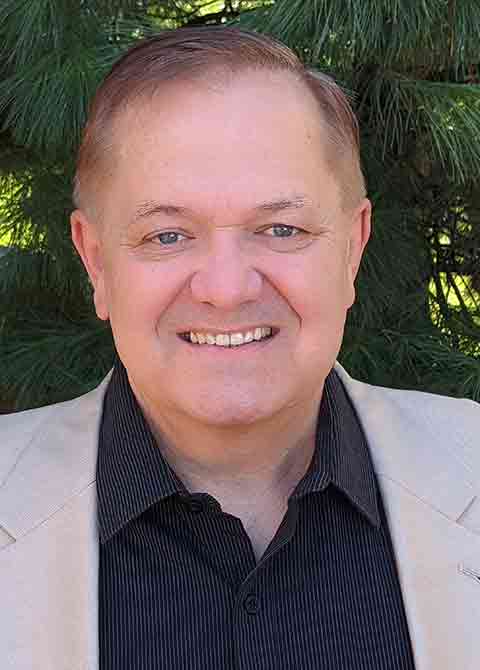
Image Source: Gerd Altmann from Pixabay
The bankruptcy proceeding of the Buffalo Roman Catholic Diocese is overseen by Honorable Carl L. Bucki, the federal Chief bankruptcy Judge for Western New York. It involves tens of thousands of persons and reaches as far as Poland and the Vatican. The symbolism of a devout Polish American Catholic presiding over the legal consequences of decades-long sex scandal in the Buffalo Roman Catholic Church cannot be overestimated. Buffalo is far away from Warsaw and an American bankruptcy may not seem to be related to Poland. However, at a closer look, the relationships are deep, far-reaching, and reveal the complexity of global connectivity on multiple levels. Polish politicians, clergy, and government should study the proceedings closely to understand how seemingly unrelated issues influence our complex global landscape. The proceeding will reveal a network of connectivity across the Atlantic, which might serve as strategic guideposts in understanding and making decisions in the fields of culture, politics, economy, and security.
The Case
The Buffalo diocese has been embroiled in a scandal since November 2018, when Bishop Malone’s former assistant, Siobhan O'Connor leaked secret records to the investigative reporter Charlie Specht reportedly showing that the diocese worked with lawyers to conceal credible abuse allegations from the public. In February 2020, the Diocese of Buffalo, faced with over 250 separate lawsuits, filed for federal Chapter 11 bankruptcy protection. Buffalo Diocese officials, citing a sharp decline in donations and an estimated $4 million per year in bankruptcy costs, were pleading with a federal judge to speed up its reorganization by reducing the time childhood sex abuse victims can file claims and appointing a mediator to negotiate a settlement. Independent sources claim that they have identified at least 143 clergy who have been publicly accused of sexually abusing children in the Buffalo Diocese, a staggering number given the Catholic population of the area.
One of these lawsuits was filed on November 2020. New York’s Attorney General Letitia James filed a lawsuit in the state’s supreme court against the diocese. The state alleges that the diocese, Bishop Emeritus Richard Malone, retired auxiliary bishop Edward Grosz, and Buffalo’s apostolic administrator at the time, Bishop Edward Scharfenberger of Albany, “failed to properly investigate claims of clergy sex abuse.” In March 2021, Honorable Carl L. Bucki ruled that the Diocese of Buffalo had “no obligation” to retain a law firm on behalf of two retired bishops, whom the state attorney general is suing for alleged cover-up of sexual abuse. The Diocese has already sued eight of its insurance carriers in bankruptcy court to force a decision on whether they will provide coverage for claims. Bishop Malone, who served the Diocese since 2012 resigned in 2019, following a Vatican-ordered investigation. Bishop Grosz resigned in March 2020.
All legal motions at the State level are now on the desk of the Federal judge, Honorable Carl L. Bucki, pending financial resolution. The diocese is facing about $100 million in estimated liability. On September 11, 2020 Judge Bucki signed an order stating that the window to sue the diocese for sexual misconduct will have expired August 14, 2021. Horowitz Law firm states on their web page that if you do not file your complaint by this court appointed date, “you may never be able to sue the Diocese of Buffalo in the future.”
The Witness
Wiesław (Wes) Walawender is one of the witnesses in numerous lawsuits against the Diocese of Buffalo. Wiesław was a Polish seminarian who decided to compete his study in the United States, receive his ordination and serve American Catholic community. What he saw in Buffalo in 1992, and his reaction to it, dramatically changed his live. He related the transgressions he had witnessed to his confessor, who advised him to file a report to his superiors. As the result, Wiesław was labeled a snitch and his honest report a fabrication. Wiesław wrote his report in his third year of theology at Buffalo's Christ the King Seminary. In 1995, Wiesław was notified that his ordination to the diaconate would be on April 27, 1995.
He invited his Mother and paid for her tickets from Poland to the United States, which was quite an expense for him. He felt satisfied that he had reached an important milestone on his arduous personal and spiritual growth. The family and friends were notified. The town where Wiesław was born was buzzing with excitement. Then, he was simply told that he would not be ordained. When he appealed to Bishop Head, the Bishop said: “"I do not know you. I do not care to know you. And I will not ordain you based on the recommendation of my advisors."
Wiesław’s spiritual path and years of dedication, study, and service were terminated. Until today, Wiesław considers the conversation with his Mother to explain what had happened as the most devastating moment of his life. The world as he knew it, the spiritual path, the family tradition, his hopes, and ambitions were destroyed. Graphic details of Wiesław’s story are beyond the scope of this article but might be found through careful Internet search.
The Bucki Family
Honorable Carl L. Bucki has worked systematically from the time he graduated from Cornell University Law School in 1976, one of the famous Ivy League universities. He reached the highest level of professional responsibility and public trust. In a typical Polonia fashion, the Buckis have experienced an impressive upward mobility during over 100 years in the United States due to strong family support and ethical commitment based on their Roman Catholic faith. Andrew Bucki came to the United States in 1907 from Jaroszowice, then Austria, at the outskirts of Wadowice, the town where Pope John Paul II was born in 1920. Andrew worked as a carpenter and auto worker, living in a house valued at $9,000 in 1920s. His son, John, was an electrician. During WWII, John was an electronics specialist during the battle of Guadalcanal in the Philippines and contributed to the landing of the Marines on the island and later in the occupation of Japan. One of his three sons is Carl L. Bucki.
Carl continues his family tradition. Together with his wife Deborach Bruch Bucki, they invested love and treasure to bring up their son Craig. Deborah is a Councilmember of the Amherst Town Council, one of the wealthiest suburbs of Buffalo; according to some sites, one of the most desirable locations to live in the United States. She is involved in Polonia organizations and always proudly proclaims her Polonia identity.
Their son Craig R. Bucki graduated from the prestigious Jesuit Canisius High School. He received his professional degree from Columbia University Law School in 2006. Currently, he is with the firm of Philips Lyttle LLP. In 2013-2021, Craig was selected as a member of the national group of “Super Lawyers” based on rigorous 12 step criteria from more than 70 practice areas. When his busy professional time allowed, Craig had served as the President of the Kościuszko Foundation, local Buffalo Chapter.
Judge Bucki served as the confidential clerk to Honorable Matthew Joseph Jasen (1915-2006), a prominent Polonia lawyer and politician. Admitted to the bar in 1940, Judge Jasen was from 1946 to 1948 President of the Third Military Government Judicial District of Occupied Germany, with its seat at Heidelberg. In 1957, he was appointed by Governor W. Averell Harriman to the New York Supreme Court 8th District. Eventually, he retired from the Court of Appeals in 1985 when he reached the constitutional age limit of 70 years.
In 1974, Judge Bucki wrote a seminal senior thesis of over 200 pages at Cornell University titled A Stacked Deck: Frustration Politics in Buffalo’s Polish Community. Carl’s work was used as a textbook in classes at the University at Buffalo. Today, the copies of the book are available from the University at Buffalo, and Yale University libraries. Carl has been systematically supporting Polonia community. For almost 20 years writing articles pro bono to the AmPol Eagle, a Polonia newspaper founded in 1960 by Matthew Pelczynski. Carl’s column My Travels Through Polonia have been a welcome feature of AmPol Eagle.
Rather than enjoying blessings from systematic contributions to the Roman Catholic Church, which Polonia entrusted with spiritual guidance and leadership, Carl must engage in the dissolution of substantial assets of Buffalo Diocese. The list of churches founded by Polonia in Buffalo is quite impressive. There are 28 churches out of 80 cites described on the interactive map called Polonia Trail, created by the Polish American Congress Western New York Division, available at http://poloniatrail.com/trail-directory/. Sadly, rather than maintaining and growing the investment of hope, trust, and faith, some of the churches are being sold, which is a disappointing evidence of poor stewardship of the wealth gifted to the Church by the Polonia.
It is critical for the future of Poland to research and understand the potential of American Polonia and provide in-depth information on possible contacts to Polish politicians regardless of party or ideology, which they in turn may use when working on the strategy and practice of strengthening Poland in today’s complicated and challenging times. There are countless important Polonia figures in the fields of culture, politics, economy, and security beyond Honorable Carl L. Bucki, who is hardly known in Poland. Only in Western New York alone, there are twelve judges with Polonia roots.
Baczynski
An example of a personality not yet researched by any Polish university is Stephan J. Baczynski (1956-2016), a federal prosecutor in Buffalo, NY, and a special legal advisor to the Polish government. The Buffalo News wrote that from 1995 to 2002, Stephan “worked on special assignment to Poland, where he helped a new government emerging from Communist rule set up its own constitutionally based criminal justice system.” Fluent in English and Polish, Stephan was considered one of the top advisors to decision makers in Poland during the seven years of his stay in Warsaw. When political winds changed, Stephan returned to Buffalo and this potentially invaluable asset was simply … dropped. From personal conversations with Stephan, this writer knows that one of his close friends was Beau Biden, a son of the 46th President of the United States, Joe Biden.
Knowledge is Power
How many of these gems of Polonia are identified by Polish experts? Who are the representatives of Polonia today used as an asset to Polish politicians and business? What is the role of the scores of doctors, professors, presidents, and their retinue of workers on government salaries in Poland charged to develop contacts with other countries? How many are paid to work on Poland-United States relationships? What is their contact with similarly positioned Americans? Does Poland pay them to merely “evaluate” and “criticize” at a distance from their American counterparts? If so, they merely reinforce the status of Poland as an unimportant, peripheral country. Where is their job description and how is this job connected to the Strategic Plan for Poland? What is the system of accountability they are subject to? Is it only a primitive political opportunism?
Thirty years is more than enough to introduce a transparent process of elevating Poland’s national needs to the deserved priority in the Polish political process, beyond political party bickering, or blinding ideological zeal. In such strategy, there must be room for a network of connectivity between Poland and Polonia across all aspect of today’s intricate global relationships. How much does Polish government know about Buffalo diocese bankruptcy proceeding? Does anyone observe it from the perspective of Polish national interest? It is still not too late. We need someone with vision and brave intent to utilize the global connectivity potential to our satisfaction and benefit. But to come up with optimal strategy, we need a robust database of relevant knowledge processed for the consumption of the government officials when the need arises.



